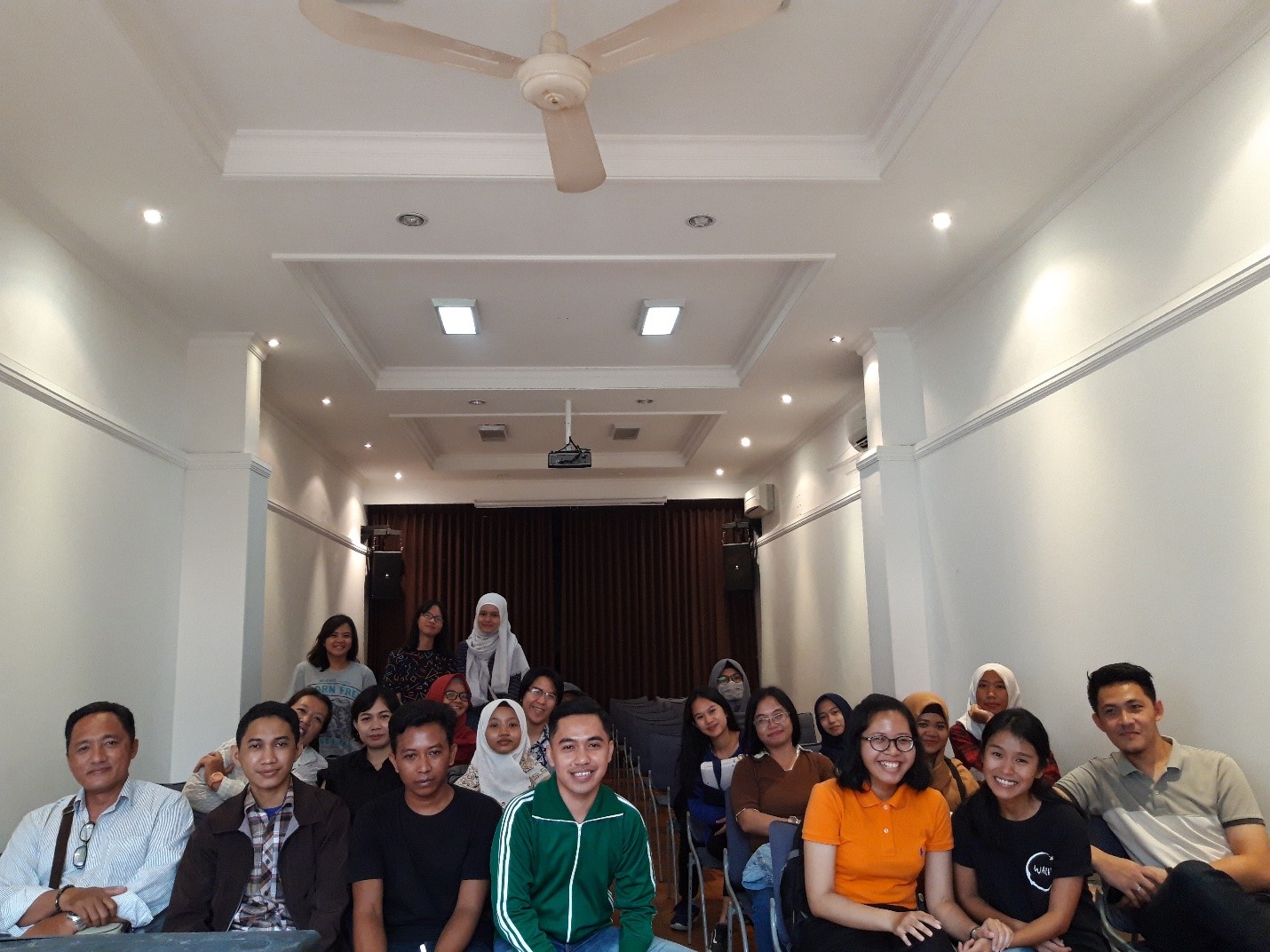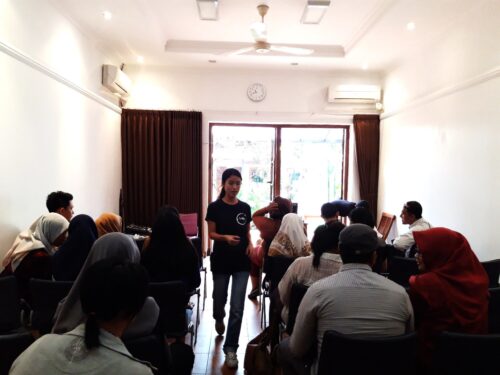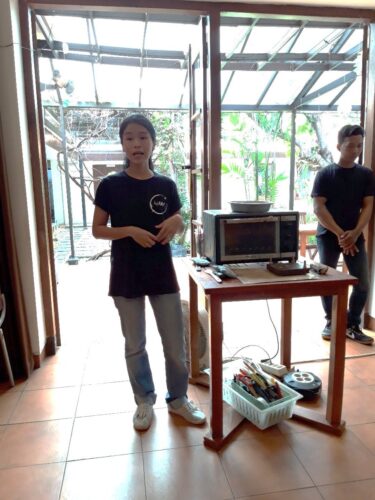News & Events
March 2020 Edition of Hallo, Halle!, – Plastic Transformation!
- March 31, 2020
- Posted by: admin
- Category: News

On the second Saturday of March, Hallo, Halle! Was held for the second time with the topic “Plastic Transformation”. This time the event discussed the problem of plastic pollution and what we as individuals can do to mitigate it. Furthermore a subsequent workshop showed how to make a hexagon coaster from plastic bottle caps.
Indonesia comes in second place after China on the list of the biggest contributors to plastic waste in the world’s oceans. This was a good reason for Hallo, Halle! to invite Verena Lindra as a speaker. She is an entrepreneur who bases her business on the transformation of plastic waste, and educates people about plastic pollution, on how to live without plastics, and what we can do on the household level to recycle our own plastic waste.

Verena explained that a plastic-less lifestyle is very difficult to achieve in our modern time, however we can reduce our plastic consumption bit by bit. An important step is to become conscious and aware of the underlying issues and then change our buying and consumer habits. For example, instead of using single-use plastic straws we can switch to reusable straws made from bamboo or stainless steel. However, removing plastic products completely is also not a solution because some people with disabilities or who are temporarily ill still depend on single-use plastic products.
This was one of the main reasons for the invention of plastic straws in the first place.
One of the simple measures that can be implemented at home is separating organic and inorganic waste. The next step would be to recycle household waste at home. Organic waste can be turned into compost while some inorganic waste can be reused with a different purpose, e. g. a used T-Shirt can be utilized as a cleaning cloth.

After a lively discussion the participants were encouraged to try themselves at recycling and to turn plastic waste into hexagon coasters. Turns out that plastic recycling cannot be done at random. Many plastic products in Indonesia are marked with a triangle and a number in it. Contrary to common belief, the number does not show how many times a product can be reused. The numbers from one to seven rather indicate the type of plastic material which in turn determines the suitable recycling processes.
In the end all participants expressed their appreciation for the event and the knowledge shared by Verena. Hopefully this event could also heighten their awareness and inspire them to implement changes in their daily lives. It has to be kept in mind however, that melting plastic for recycling purposes should only be conducted under supervision of an expert and with the appropriate technology. Wrong treatment will potentially potential to produce toxic gas which will affect the well-being of everyone involved.
